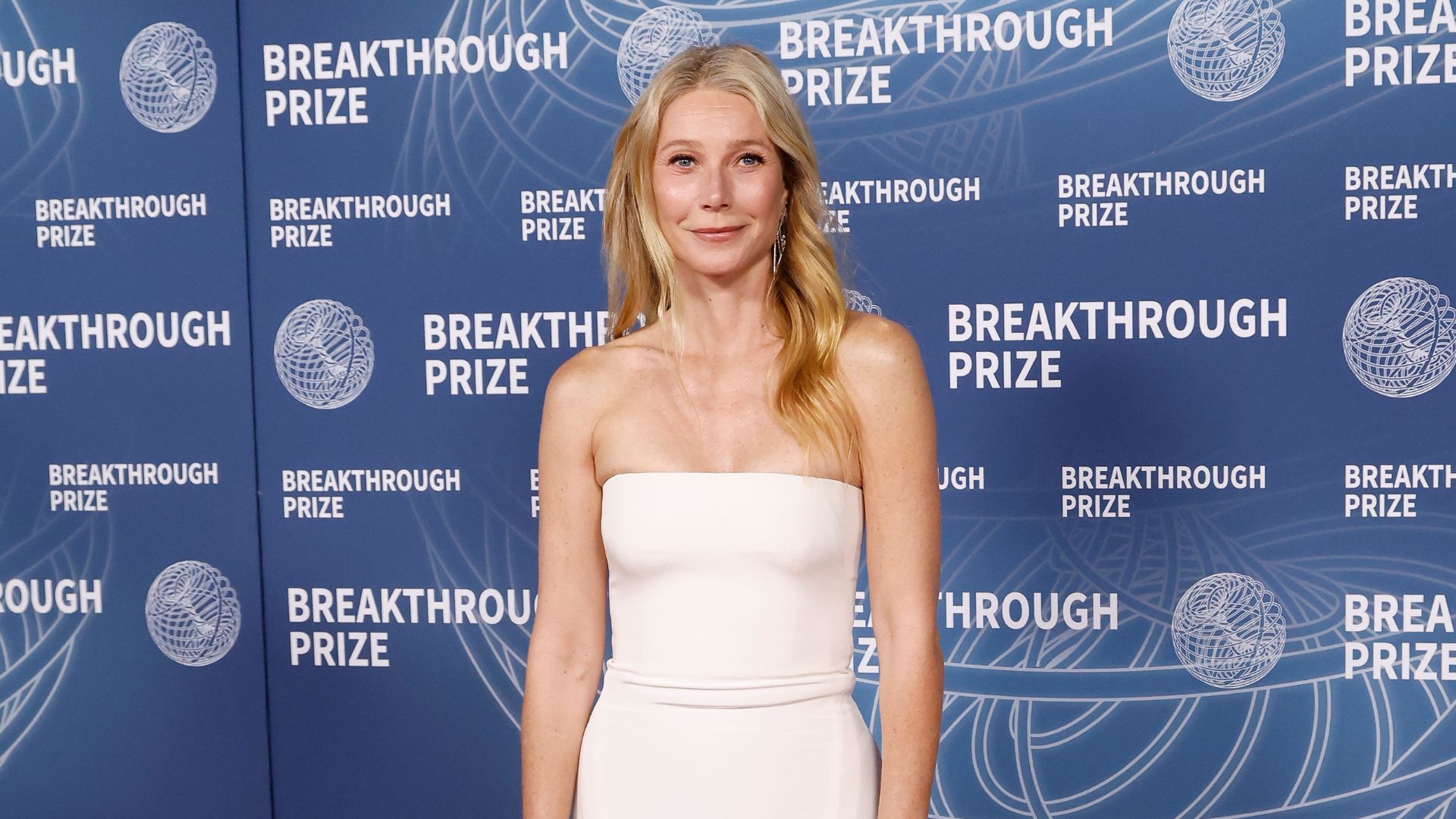The Orville Sucks, and I’m Going to Keep Watching It
When The Orville isn’t filling dead space with vapid dialogue and one-note character interactions, it’s actually not that bad.
Remember Galaxy Quest? Sweet Shatner, it was everything people loved about Star Trek combined with everything people love about late-‘90s Tim Allen comedies. Not only was the film hilarious, but it had a terrific sci-fi premise, an all-star cast of memorable characters, a gut-bustingly funny script and an assortment of action sequences that had fans cheering in their seats.
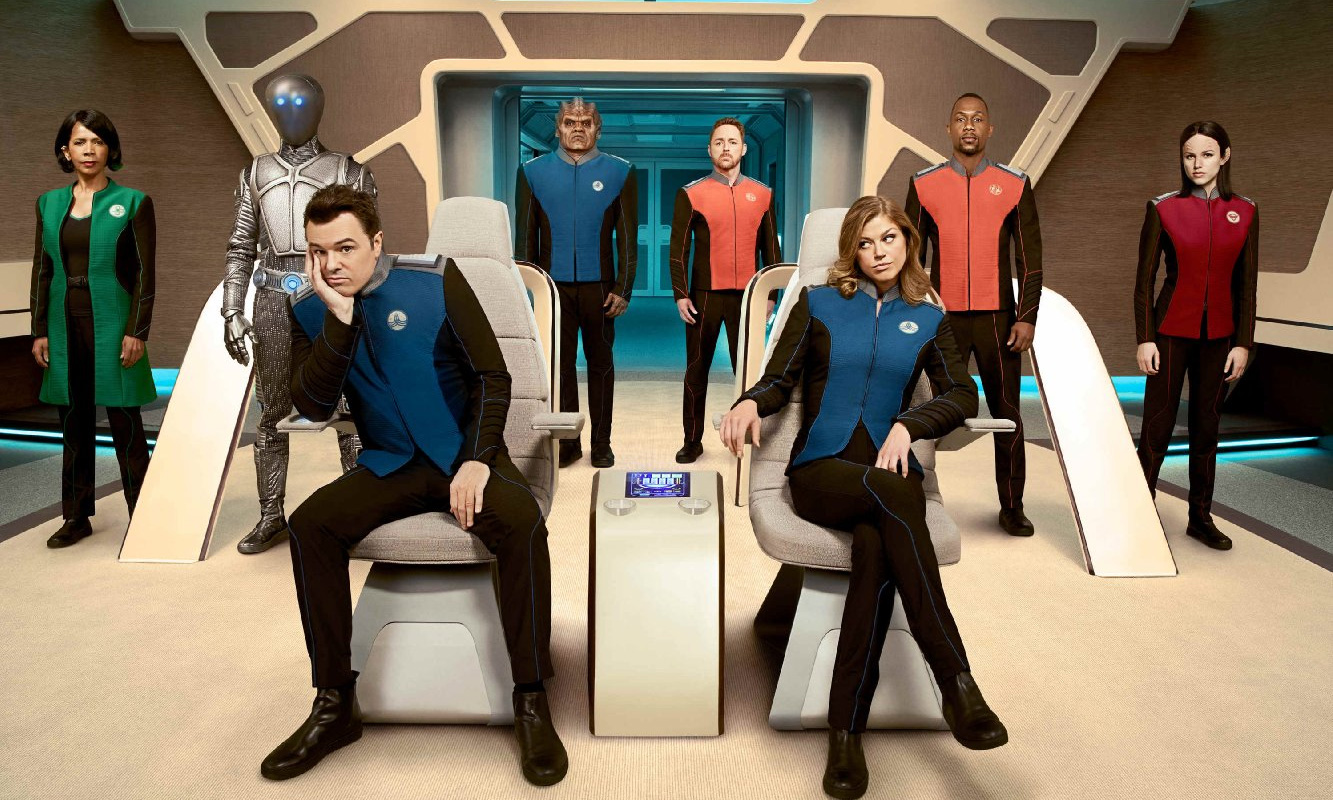
Now imagine if Galaxy Quest didn’t have any of those things. That’s pretty much The Orville: a new Seth MacFarlane vehicle that premiered last night on Fox. You may know MacFarlane as the mastermind behind shows like Family Guy or movies like Ted — or you may know him as a recurring bit character on Star Trek: Enterprise.
MORE: Best and Worst Cable Replacements
If you’ve followed MacFarlane’s career at all, it should come as no surprise that the man is a huge Trekkie. (Isn’t everyone?) Star Trek has always been at the periphery of his work, from cutaway jokes in Family Guy, to casting Patrick Stewart in American Dad, to animating sequences for Neil deGrasse Tyson’s Cosmos reboot. The Orville is finally his chance to create a big-budget, Trek-style show from scratch, combining his unique sense of humor with a futuristic space opera setting.
The problem — and this is a fairly big problem in a comedy — is that the show is not funny. At all.
The result is… not very funny. In fact, it’s painfully unfunny. And that’s a shame, because when the show isn’t filling dead space with vapid dialogue and one-note character interactions, it’s actually not that bad. MacFarlane proved that he’s fully absorbed the aesthetics and general tone of Star Trek, but seems unwilling to give up his low-key, sitcom-style dialogue and quippy jokes, even though they absolutely, positively do not work in this setting.
Star trekkin’ across the universe
In case you opted to skip The Orville and watch reruns of Deep Space Nine instead (incidentally, that was good call on your part), here’s what you missed:
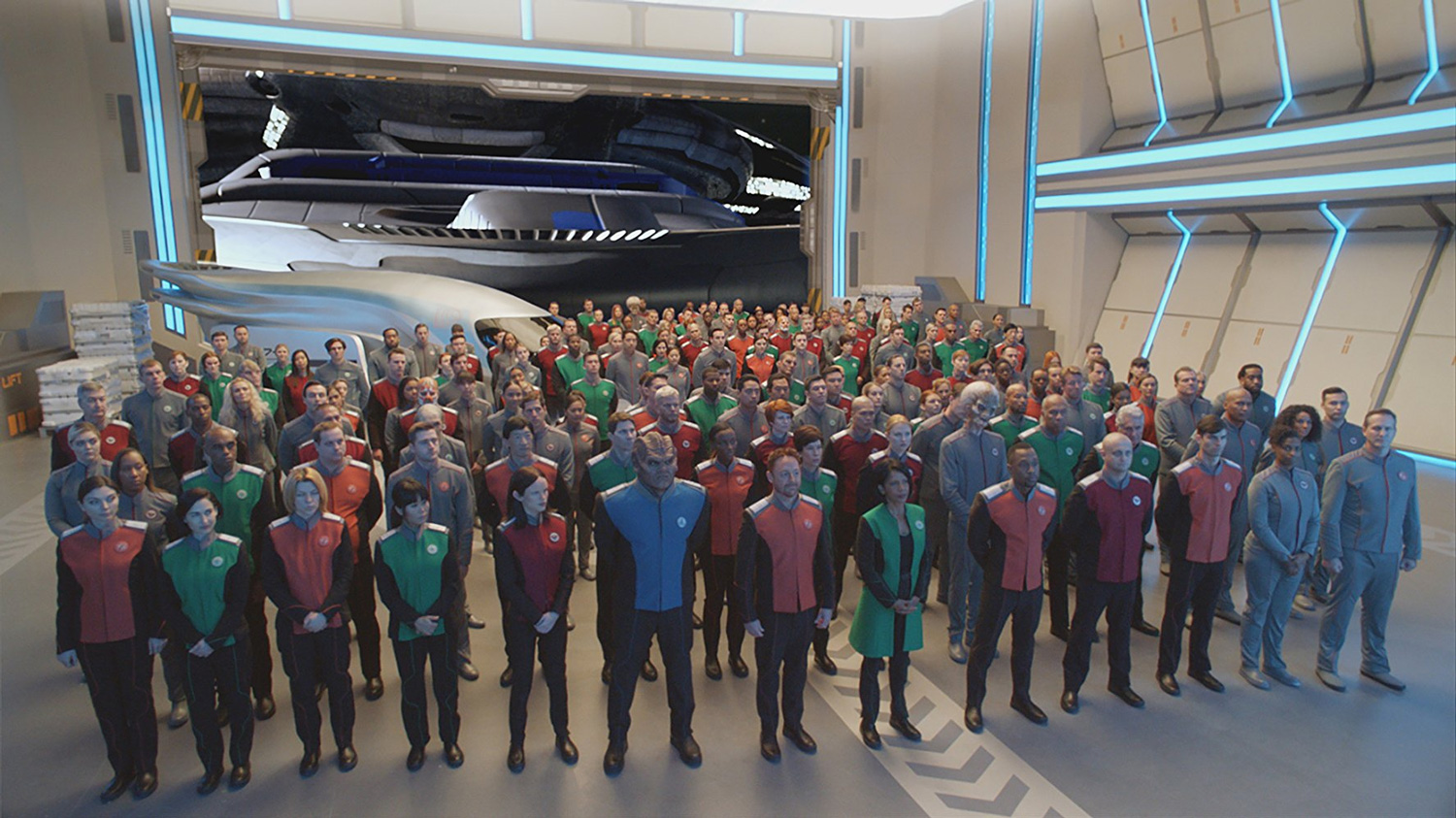
Ed Mercer (Seth MacFarlane) is an officer in the Planetary Union (basically, the United Federation of Planets) who finds out that his wife, Kelly Grayson (Adrianne Palicki) has been cheating on him. A year later, Mercer’s career has taken a nose dive, but the Union offers him command of an unassuming exploration called the Orville as one last chance to redeem himself.
He recruits a team of diverse bridge officers — you know the drill. There’s the guy with a troubled past, the guy just trying to do his job, the gal who feels the need to prove herself, the gal who is suspicious of the captain’s competence, and so forth. They’re all fine, although Halston Sage as security officer Alara Kitan is the only one adding any energy and excitement to the proceedings. The rest are so low-key, it’s hard to believe that they’re on a starship, exploring the galaxy and doing battle with fearsome foes, rather than scrubbing the vents in an asteroid mine somewhere.
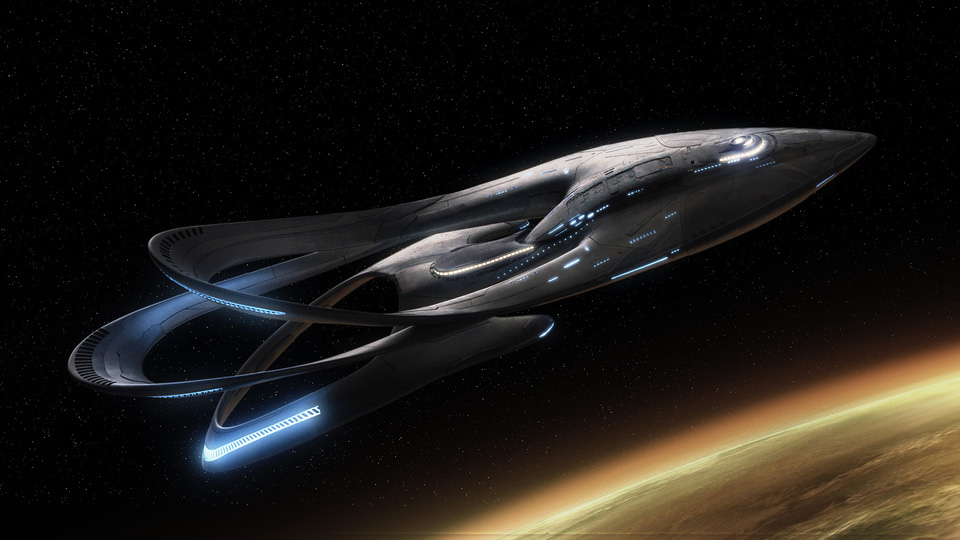
Mercer takes the Orville on its first mission where — surprise! — his unfaithful ex-wife gets assigned to be his first officer. But that gets (mostly) pushed to the wayside as they travel to the Epsilon system and meet the brilliant Dr. Aronov (Brian George, who is required by federal law to appear in every mid-budget sci-fi TV series and video game). There, a team of scientists has developed a technology that can manipulate the flow of time, and a belligerent alien race called the Krill want it for themselves. Cue betrayals, gunfights, space battles and everything else you’d expect from an action-oriented episode of Star Trek.
The funny thing is, save for the constant marital jabs between Mercer and Grayson, most of the episode’s second half would feel right at home in an episode of Star Trek: The Next Generation. (Not one of the really good ones, like with the flute or the time loop. Just one of the average, forgettable ones that you skip when it comes up in your Netflix binge.) A time-manipulation field could spur an adventure-of-the-week in a “real” sci-fi series, and the Krill — while a bit one-note — are no worse than the Suliban in Enterprise as “villains introduced in the pilot who have much more complex goals later in the season.” The story is logical and coherent, and the futuristic aesthetics are dead-on.
Taking the “comedy” out of “sci-fi/comedy”
The problem — and this is a fairly big problem in a comedy — is that the show is not funny. At all. The dialogue is unbelievably quotidian, and MacFarlane expects the “modern-day dialogue/futuristic setting” dichotomy to do all the heavy lifting. The problem is, once you get over the fact that the entire crew of the Orville talks like a bunch of co-workers standing around a water cooler, there’s not much else to the show’s humor. Admittedly, this is better than MacFarlane’s grating, gratuitous, over-the-top vulgarity in Family Guy, but at least that vulgarity occasionally makes you laugh.
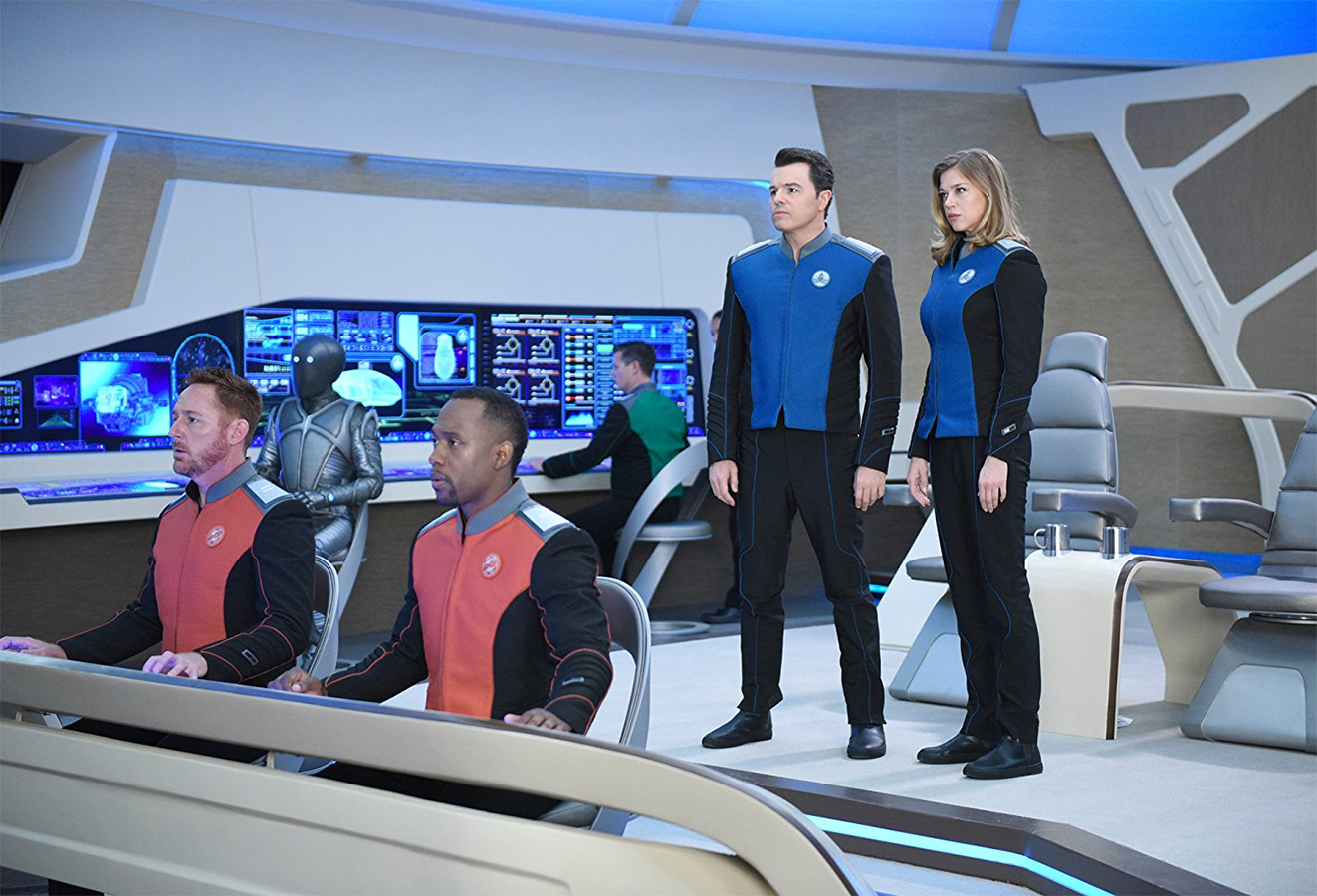
The navigator wants to know if he can drink soda on the bridge. The helmsman programs a friendly, bro-tastic ogre for a holodeck simulation. The second officer humorlessly informs Mercer that his species urinates only once a year. From tired scatological humor to even more tired battle-of-the-sexes tropes, MacFarlane fires off microjoke after microjoke, hoping to at least make the audience smile, but there are few actual, regular-size jokes.
And whatever else you can say about Seth MacFarlane, the man is a true blue Trek fan. His love for the source material shines through in every scene.
There are no big humorous set pieces; the action scenes are all played pretty straight. Again, imagine if everyone involved with making Galaxy Quest — both the actors and the crew — were profoundly bored by the whole thing, but kind of liked all the special-effects ship battles, and that’s pretty much The Orville in a nutshell.
Now what?
I came away from The Orville fully prepared to write it off, but then I had a funny realization: I’m absolutely planning to tune in again next week. It’s not because the show is good — it’s not — but because the show’s central conceit is, at the end of the day, not a bad one. We already know that a Star Trek spoof that earnestly loves its source material can be a great thing, or else fans wouldn’t still be clamoring for a Galaxy Quest follow-up almost 20 years later.
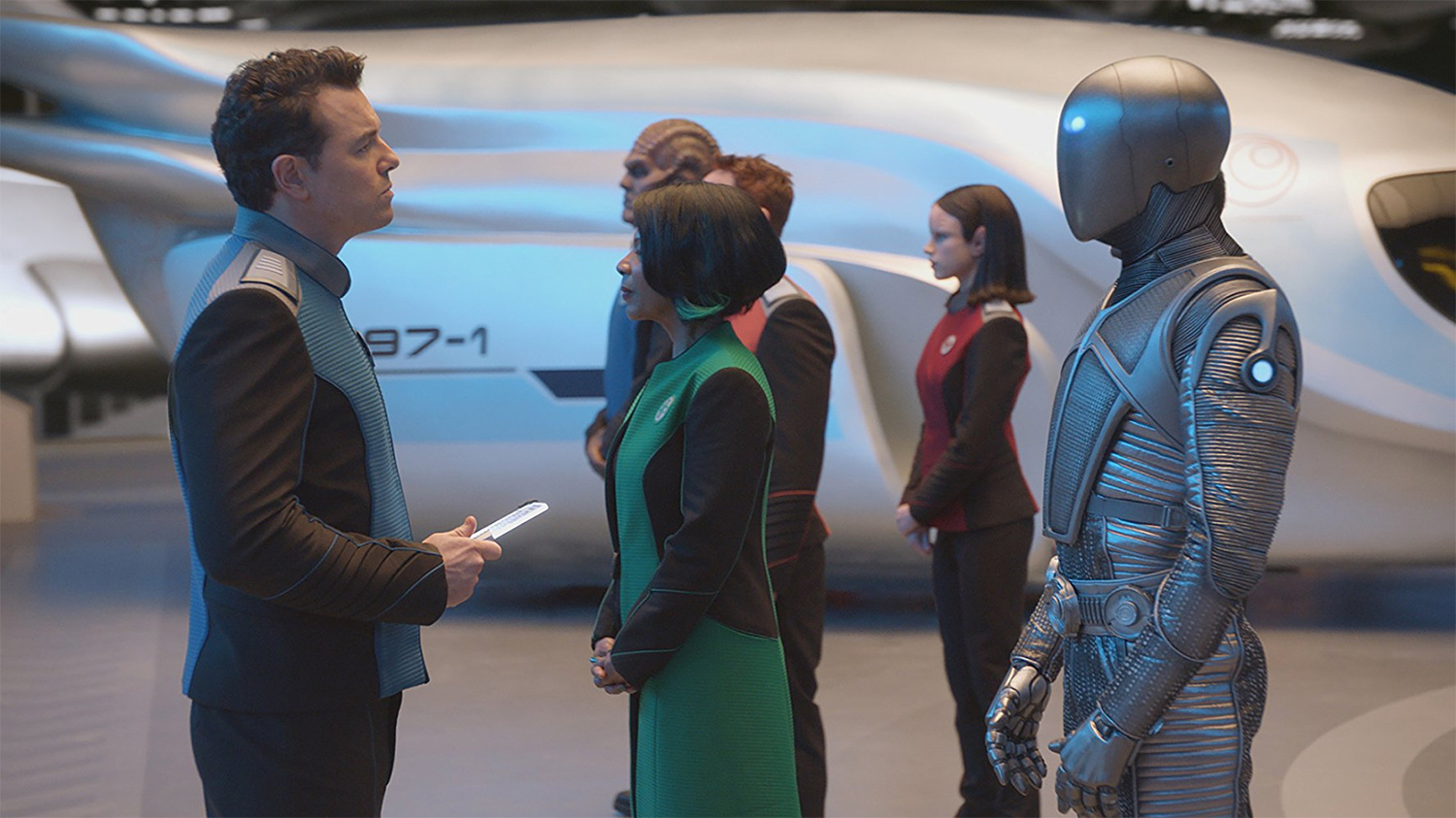
And whatever else you can say about Seth MacFarlane, the man is a true blue Trek fan. His love for the source material shines through in every scene of The Orville that plays it straight. Mercer himself, competent and eager, feels like he wandered in from an episode of an actual Star Trek show; most of the other characters feel like extras from Ted. Whatever else you can say about the show, there’s something undeniably rewarding about getting to see a Star Trek fan live out his dream of commanding a starship.
Until Star Trek: Discovery comes out in a few weeks, there just aren’t that many space adventure shows on TV, and we haven’t had a traditional, Trek-style exploration adventure since Enterprise went off the air in 2005. No, we’re stuck with The Orville for now, if only for a few more weeks. I’ll give it a chance, but if Discovery is as good as it has the potential to be, The Orville will have to either become very funny or very charming for me to stick it out until the end of the season.
Credit: Fox
Sign up to get the BEST of Tom's Guide direct to your inbox.
Get instant access to breaking news, the hottest reviews, great deals and helpful tips.
Marshall Honorof is a senior editor for Tom's Guide, overseeing the site's coverage of gaming hardware and software. He comes from a science writing background, having studied paleomammalogy, biological anthropology, and the history of science and technology. After hours, you can find him practicing taekwondo or doing deep dives on classic sci-fi.
-
amasis6 The only line I found funny was the Obi-Wan reference. But maybe I was just caught off guard that it CAN be funny rarely. Discovery looks very good though.Reply -
SteveFoerster Am I the only one who remembers that the first season of Next Generation was about as exciting as watching grass grow? Orville is already a hell of a lot better than that. It takes time for shows like this to find their footing. I'll see it through.Reply -
drew_d2 It seems to me that you are looking at "The Orville" as a parody. It's not. And that's probably why you don't find it to be funny. "The Orville" is a nice, relaxing laid-back series, and I find it hilarious. I laugh out loud the entire show. "The Orville" is better than Star Trek Discovery IMO. I guess different people have different senses of humor, though.Reply
Lets get beyond the humor: "The Orville" is more Star Trek than "Star Trek Discovery". The creative political issues it takes on (not the uncreative tired old issues in the mainstream), the positive attitude and energy of the entire show, that's what Star Trek is. Every episode is about the daily life of the characters. I mean seriously, how do you get more Star Trek than "The Orville"? I think you're going to find "The Orville" grow on you. -
justinkeegan1 the Orville is great needed sumthing to replace dark matter rip.... dont even bother with discovery complete garbage!!!!Reply

